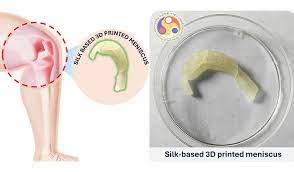September 5, 2024
The American Journal of Gastroenterology has released updated guidelines on the treatment of Helicobacter pylori (H. pylori) infection, marking a significant change from previous recommendations. The new guideline, authored by Dr. William D. Chey, M.D., Chief of the Division of Gastroenterology and Hepatology at Michigan, revises the primary treatment strategy for patients newly diagnosed with H. pylori.
H. pylori, a bacterium affecting over half of the global population, is often asymptomatic but can lead to dyspepsia, peptic ulcer disease, and even gastric cancer. Despite a decline in prevalence in North America, the infection still impacts 30-40% of the population.
The 2017 guideline had endorsed proton pump inhibitor-clarithromycin triple therapy as the primary treatment. However, the new guidelines shift this recommendation in favor of bismuth quadruple therapy. This regimen includes a proton pump inhibitor (PPI), tetracycline, bismuth, and nitroimidazole, administered over 14 days.
Dr. Chey emphasized that the shift comes in response to growing issues with chloromycetin resistance among H. pylori strains. “We had already advised healthcare providers to consider alternatives to PPI triple therapy in 2017 due to rising resistance,” Chey explained. “Despite this, PPI triple therapy remains prevalent in the U.S. We are now explicitly recommending bismuth quadruple therapy or other suggested treatments over PPI triple therapy.”
The updated guidelines present 12 treatment recommendations tailored to various patient scenarios. Following bismuth quadruple therapy, the second-line option for treatment-naïve patients is rifabutin triple therapy, which includes a PPI, rifabutin, and amoxicillin. Another new option involves a novel, potent drug called vonoprazan, combined with amoxicillin to inhibit stomach acid production.
Additionally, the guideline introduces a focus on molecular testing for antibiotic susceptibility, a development that allows for more precise tailoring of therapy based on individual antibiotic sensitivity. “Molecular testing enables a more personalized approach by identifying which antibiotics are effective against a patient’s specific H. pylori strain,” Chey noted.
The guideline also outlines future research directions, including identifying populations at higher risk for gastric cancer who might benefit from H. pylori testing and evaluating new FDA-approved treatments for persistent infections.
For more detailed information, refer to the article by William D. Chey et al, ACG Clinical Guideline: Treatment of Helicobacter pylori Infection, published in The American Journal of Gastroenterology (2024). DOI: 10.14309/ajg.0000000000002968.
American Journal of Gastroenterology












